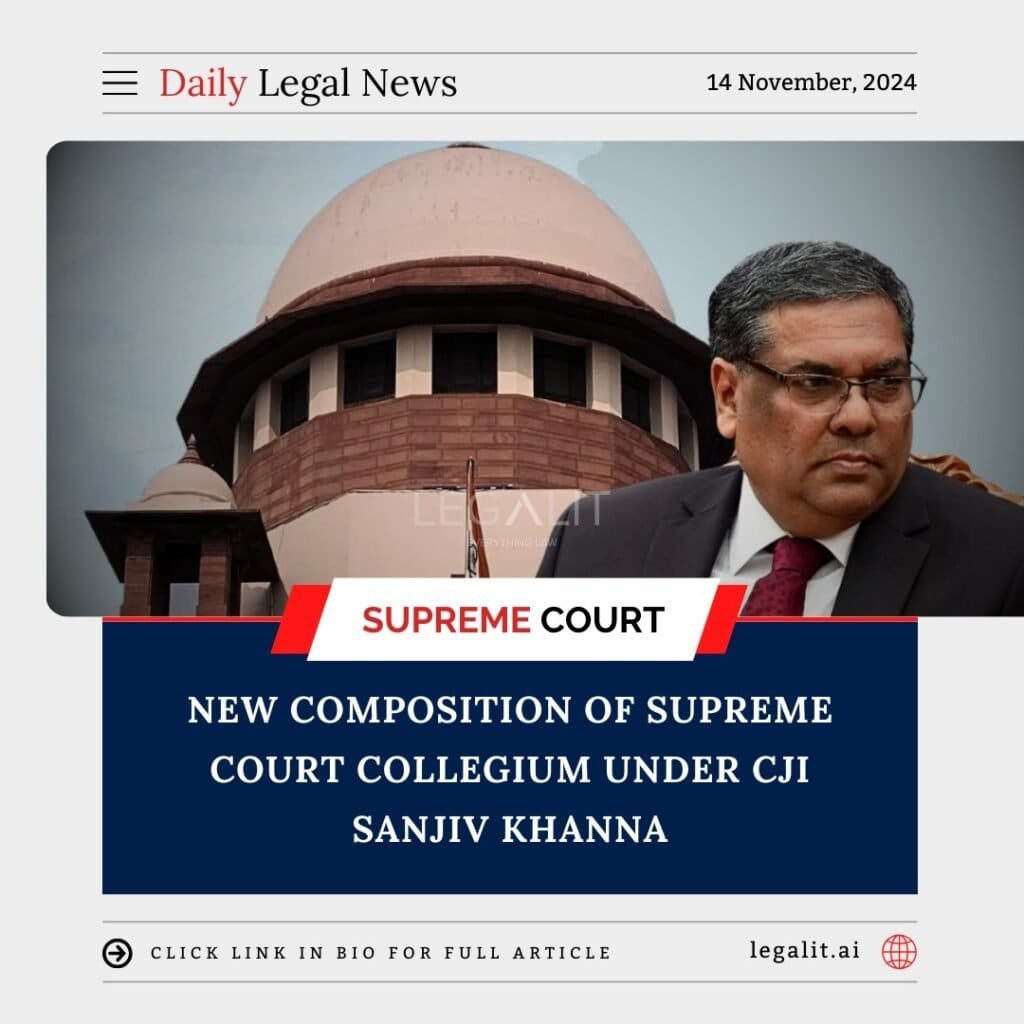
With Justice Sanjiv Khanna assuming the role of Chief Justice of India (CJI), the composition of the Supreme Court Collegium, responsible for judicial appointments and transfers, has seen a significant shift. This restructuring brings together new judicial perspectives and priorities in decision-making for the nation’s top court.
Background:
The Supreme Court Collegium, a body comprised of the five senior-most judges of the Supreme Court, holds a critical role in recommending appointments and transfers within the higher judiciary. The Collegium’s decisions on judicial postings aim to ensure integrity, transparency, and efficiency in India’s legal system. The arrival of Justice Khanna as the CJI marks a transition in Collegium leadership, potentially shaping the future of judicial appointments.
New Collegium Members:
Under CJI Sanjiv Khanna, the Collegium includes Justices BR Gavai, Surya Kant, JB Pardiwala, and MM Sundresh. Each member brings unique experiences and perspectives, with backgrounds in diverse legal fields such as criminal, constitutional, and civil law. This Collegium is expected to handle pressing judicial appointments to address vacancies across various High Courts and to manage the selection of Supreme Court judges amid increasing caseloads.
Role and Expectations:
The restructured Collegium under CJI Khanna is expected to prioritize timely judicial appointments and improved geographical diversity within the judiciary, addressing the representation of various states in higher judicial roles. Another anticipated focus will be on enhancing transparency in the Collegium’s decisions, given recent calls for accountability within the judiciary. With increasing demands for judicial efficiency, the new Collegium may also work toward appointing judges who are well-versed in handling specialized cases, particularly those related to emerging legal challenges such as digital rights, environmental issues, and economic reforms.
Conclusion:
The Collegium, led by CJI Sanjiv Khanna, is set to play a pivotal role in shaping India’s judiciary. As it navigates appointments, transfers, and administrative changes, this Collegium is likely to influence the future judicial landscape by fostering diversity, transparency, and efficiency in higher courts across the nation.